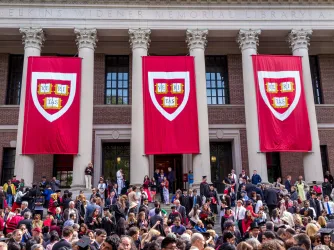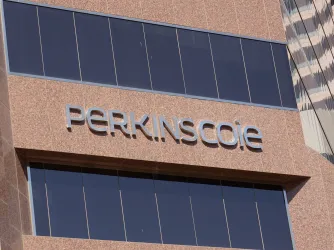Table of Contents
Eliminating Unconstitutional Speech Codes: A Nonpartisan Issue
Commentators and academic organizations from a variety of political viewpoints have recently denounced campus speech codes, echoing the alarm that FIRE has sounded for the past decade.
In a January 2 Wall Street Journal op-ed, Peter Berkowitz discussed the need for fellow conservatives to find common ground after what many interpreted as a national repudiation of their views in the November elections. Social conservatives and libertarian conservatives, the Hoover Institution research fellow argued, must "concentrate their attention on the constitutional order and the principles that undergird it," ushering in a new era of constitutional conservatism. One of the leading items on this agenda:
A demand that public universities abolish speech codes and vigorously protect liberty of thought and discussion on campus.
Berkowitz, author of Nietzsche: The Ethics of an Immoralist, recognizes the fundamental importance of uninhibited campus dialogue to the preservation of liberty. (FIRE's case at Temple College, where administrators censored a Nietzsche quote posted on a professor's door, would certainly irk Berkowitz). At FIRE, we believe preserving free speech and academic freedom is crucial, too, for reasons important to conservatives, liberals, libertarians, independents, and everyone else. That's a big reason why we produce our annual report on speech codes.
The 2009 speech code report found that more than three quarters—77 percent—of public universities had speech codes that violated the constitution, despite their legal obligation to preserve First Amendment guarantees.
The state of campus speech was also a hot topic at the National Association of Scholars' annual conference this past weekend. Cary Nelson, president of the American Association of University Professors (AAUP), said that speech codes are an affront to academic freedom. He expressed a willingness to collaborate with organizations—some with which the AAUP has disagreed in the past—in order, as he told The Chronicle of Higher Education, to "knock out speech codes."
While we put pressure on these schools for violating students' rights, FIRE's co-founder Harvey Silverglate has adopted a new and slightly different approach to changing this illiberal culture. As we previously reported, Harvey is campaigning to be nominated as a petition candidate for the Harvard Board of Overseers, one of its two governing bodies.
One of Harvey's main positions is to eliminate campus speech codes, which have, in large part, contributed to Harvard's position on FIRE's list of "red light" schools. From Harvey's campaign statement:
The tyranny of these speech codes has materially curtailed the free-wheeling discussion, even disputation, of important academic and cultural issues that should be freer on a campus of higher education than anywhere else in our society.
Harvey faces a challenging, uphill electoral battle to be seated on the governing body. The Harvard Alumni Association nominates a slate of official candidates in the annual Overseers election while other interested parties—like Harvey—must appeal directly to alumni to secure a place on the ballot. Harvey is still gathering the required 219 signatures from Harvard degree-holders to appear on the Overseers ballot. (To add your support, send an e-mail to kyle@harveysilverglate.com.) The "official" candidates, with nods of approval from the Harvard powers-that-be, are typically more successful in the elections—even when petition candidates are undoubtedly inspiring.
Recent history suggests, however, that Harvard needs fresh ideas for reform, and Harvey isn't the only one who has heard this message. Longtime FIRE supporter Robert Freedman (Harvard College '62) has teamed up with Harvey in this grassroots effort, as Bob says, to help Harvard improve itself.
While Bob's main goal is to reinvigorate the undergraduate curriculum, Harvey looks to enhance fair process in student disciplinary matters, restore the student voice in alumni outreach efforts, and generally promote academic freedom. To achieve the latter, Harvey and Bob agree, Harvard's speech codes need to go. That's an issue many liberals, conservatives, and independents view as central to American liberty and, of course, to the success of the educational enterprise.
Recent Articles
FIRE’s award-winning Newsdesk covers the free speech news you need to stay informed.

FIRE POLL: Only 1/4 of Americans support deporting foreigners for pro-Palestinian views

Harvard’s resistance to Trump is a model for US universities

Sixty-one media organizations and press freedom advocates contest Perkins Coie executive order — First Amendment News 466
